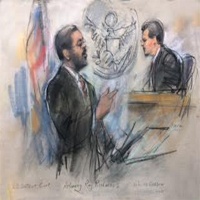Detroit Juvenile Law Lawyer, Michigan
Sponsored Law Firm
-
 x
x

Click For More Info:
-
Richards & Associates, PLLC
200 East Big Beaver Road Troy, MI 48083» view mapCriminal Defense Accomplished Criminal Defense Attorney
If you face criminal charges, you deserve an experienced defense lawyer who has a reputation for winning the tough cases.
800-844-5250
Richard M. Halprin
✓ VERIFIEDCriminal, Family Law, Juvenile Law, Litigation
As an experienced attorney and district court magistrate, Richard Halprin has cultivated a network of relationships within the legal community, includ... (more)
Kenneth A. Thompson
✓ VERIFIEDCriminal, Traffic, Juvenile Law, Personal Injury, Estate
Kenneth A. Thompson was born in Michigan in 1980. He grew up in Westland, Michigan with his mother and sister after losing his father to a heart attac... (more)
Michael David Friese
Land Use & Zoning, Juvenile Law, Criminal
Status: In Good Standing Licensed: 13 Years
Danielle R. W. Nuccio
Juvenile Law, Litigation, Family Law, Criminal
Status: In Good Standing Licensed: 9 Years
Stephanie Elena Farkas
Federal Appellate Practice, Juvenile Law, Criminal, Collection
Status: In Good Standing Licensed: 14 Years
Adrienne Nicole Young
Juvenile Law, Federal Appellate Practice, Criminal, Collection
Status: In Good Standing Licensed: 11 Years
Mary Carolyn Barnes
Juvenile Law, Labor Law, Family Law, Elder Law
Status: In Good Standing Licensed: 17 Years
Janice H. Jones
Juvenile Law, Federal Appellate Practice, Family Law, Children's Rights
Status: In Good Standing Licensed: 36 Years
 Ray Richards Troy, MI
Ray Richards Troy, MI AboutRichards & Associates, PLLC
AboutRichards & Associates, PLLC Practice AreasSpecializations
Practice AreasSpecializations


